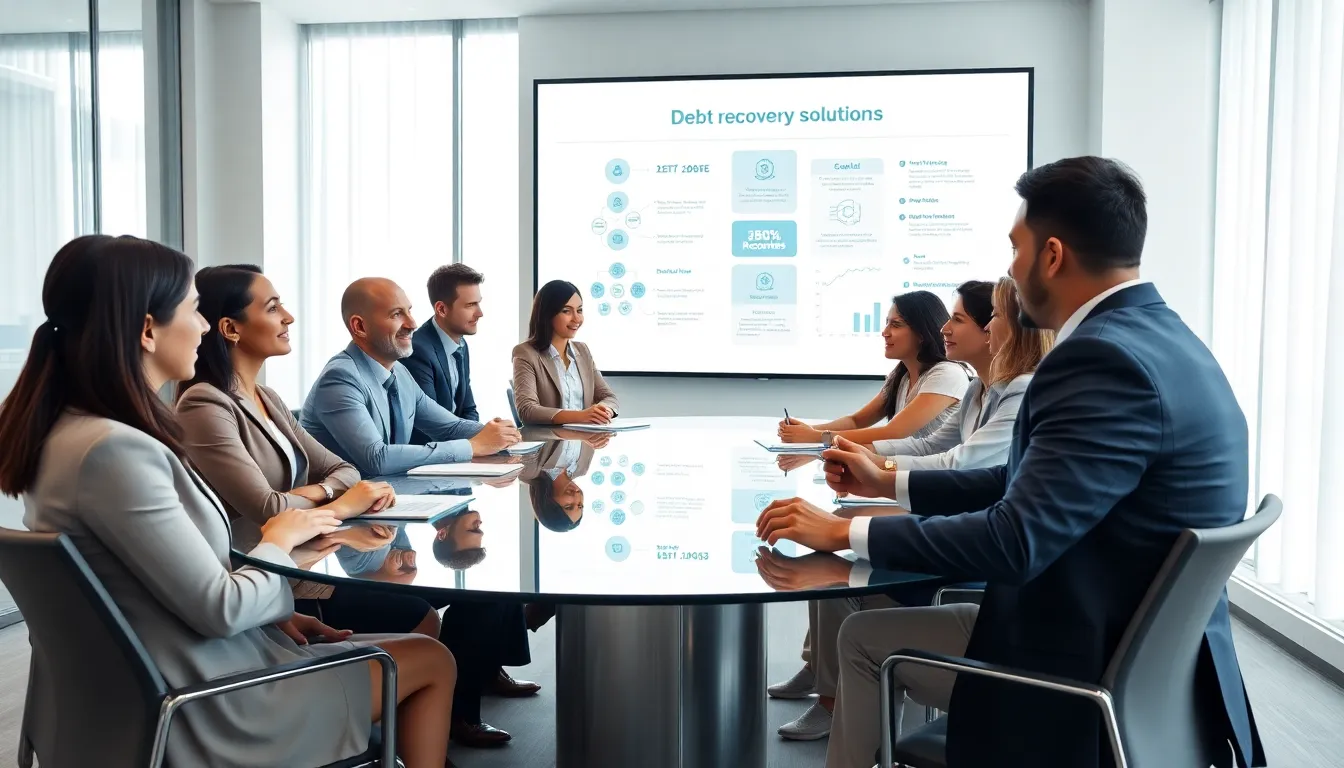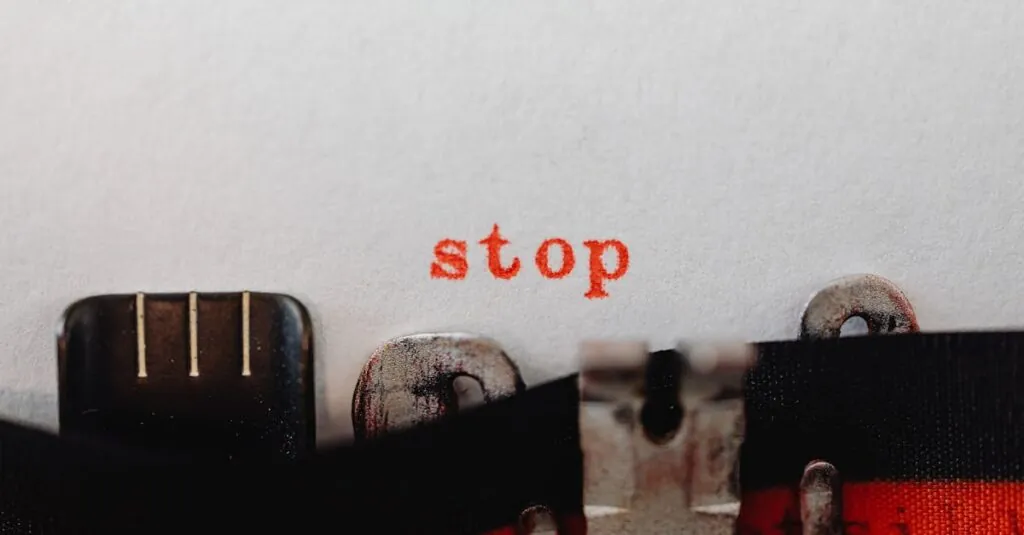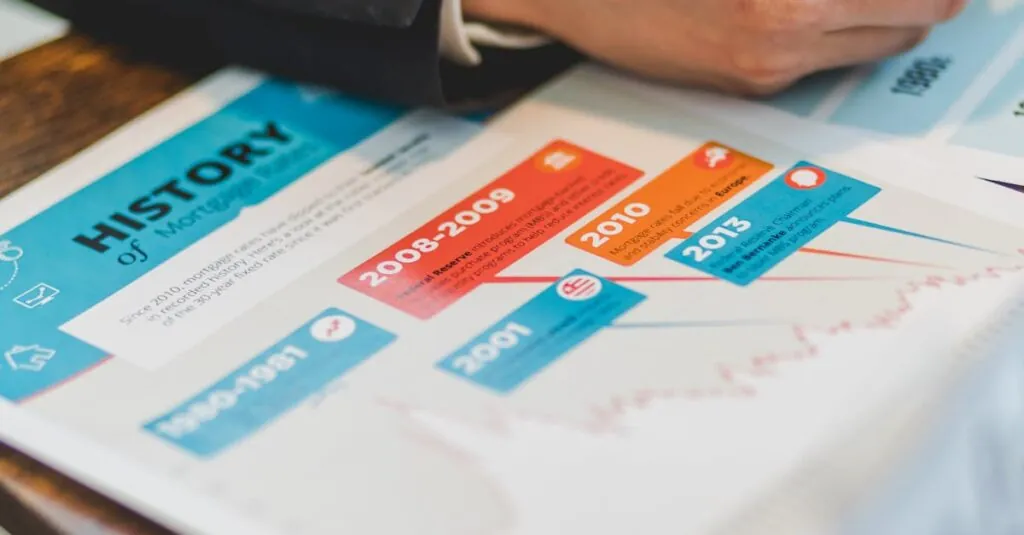In a world where bills can pile up faster than laundry on a Sunday, understanding debt recovery solutions is crucial. Picture this: you’ve lent money to a friend who suddenly acts like they’re on an extended vacation. Cue the collection agency, your financial superhero ready to swoop in and save the day. But before you jump into the world of debt recovery, let’s break down what you really need to know about these services, without putting you to sleep.
Understanding Debt Recovery Solutions

Debt recovery solutions encompass a broad range of services aimed at helping businesses reclaim unpaid debts. Most companies in distress will use these solutions to maintain cash flow and ensure financial stability. But what goes on behind the scenes? Recovery solutions can include everything from gentle reminders to legal proceedings. Unlike emails from your internet provider, debt recovery isn’t just annoying: it’s an essential component of running a successful business.
When a debt becomes overdue, the stakes can rise. Companies need strategies to recover these funds efficiently, and that’s where collection agencies come into play. They provide the expertise and manpower necessary to tackle these daunting tasks. Imagine having a dedicated team that knows the ins and outs of debt recovery. Sounds like a dream, right? Well, it’s a reality for many businesses that seek out professional help.
Types of Debt Recovery Services
Debt recovery services come in various flavors, much like your favorite ice cream shop. Here are some of the key options available:
First-Party Collection
This involves the original creditor attempting to collect their debts. It’s often the gentler route, where companies handle their own collections with phone calls and letters.
Third-Party Collection
In this scenario, businesses hire an external collection agency to do the dirty work. This can save time and allow the original creditor to focus on their core business, while a dedicated agency handles the follow-ups.
Debt Purchase
Some agencies buy debts at a discount and then pursue the full amount from debtors. This option is akin to a high-stakes poker game, where agencies bet on the likelihood of recovering the debt.
Legal Services for Debt Recovery
In cases where gentle nudges don’t work, some agencies offer legal support. They can help businesses navigate the murky waters of debt collection through litigation.
The Role of Collection Agencies
Collection agencies play a pivotal role in the debt recovery landscape. Their expertise lies in navigating the often complex and emotional terrain of overdue debts. When a business decides to partner with a collection agency, it’s like having a legal sidekick who knows the ropes.
Most collection agencies have trained professionals who are skilled negotiators. They know how to approach debtors in ways that maintain professionalism and, when possible, preserve relationships. This approach not only ensures recovery but also helps maintain the company’s public image. After all, nobody wants a reputation for being a heartless creditor.
Besides, collection agencies manage the often daunting administrative tasks associated with debt recovery, from documenting communications to following legal protocols. Their support can ensure that businesses comply with local regulations while increasing the likelihood of recovering debts.
How to Choose the Right Collection Agency
Choosing the right collection agency can feel like finding a needle in a haystack. But, with some careful consideration, businesses can increase their chances of choosing a partner that aligns with their needs. Here are some tips:
Assess Your Needs
Determine the extent of your debt collection needs. Are you looking for a more aggressive approach, or do you prefer a diplomatic touch? This will help narrow down your options.
Research Reputation
Look for agencies with strong reputations. Online reviews and testimonials can provide insights into their effectiveness and customer service.
Verify Licensing and Accreditation
Ensure the agency is licensed and accredited according to your local laws. A valid license ensures they adhere to regulations and standards.
Evaluate Experience
Consider agencies that specialize in your industry. Familiarity with your sector can make a significant difference in recovery rates.
Legal Considerations in Debt Recovery
Navigating legal considerations in debt recovery is crucial. Federal and state regulations dictate how collections should be conducted. Ignoring these rules can lead to costly penalties and legal troubles.
Fair Debt Collection Practices Act (FDCPA)
This act protects consumers from abusive collection practices. Understanding these laws helps businesses avoid actions that may cross legal lines, ensuring ethical compliance throughout the recovery process.
Documentation is Key
Keeping accurate records is essential. From communications to agreements, documentation serves as proof of compliance with collection laws. This can protect businesses if any disputes arise.
Effective Strategies for Successful Debt Recovery
Successful debt recovery hinges on effective strategies, transforming potential losses into secured assets. Here are some tried-and-true tactics:
Proactive Communication
Consistent communication is vital in debt recovery. Regular follow-ups can remind debtors of their obligations without being overbearing.
Offers and Payment Plans
Consider negotiating repayment plans or settlements. Sometimes offering a compromise can lead to better recovery outcomes than maintaining a rigid stance.
Leverage Technology
Utilizing debt recovery software can streamline processes and keep records organized. Many agencies today use advanced software to track interactions, automate reminders, and analyze recovery data.













